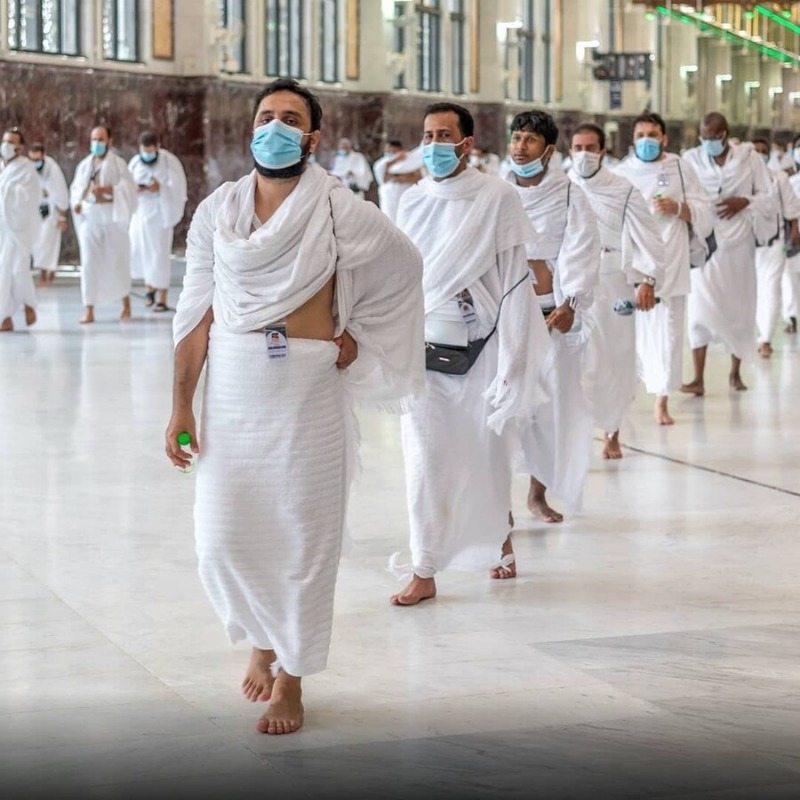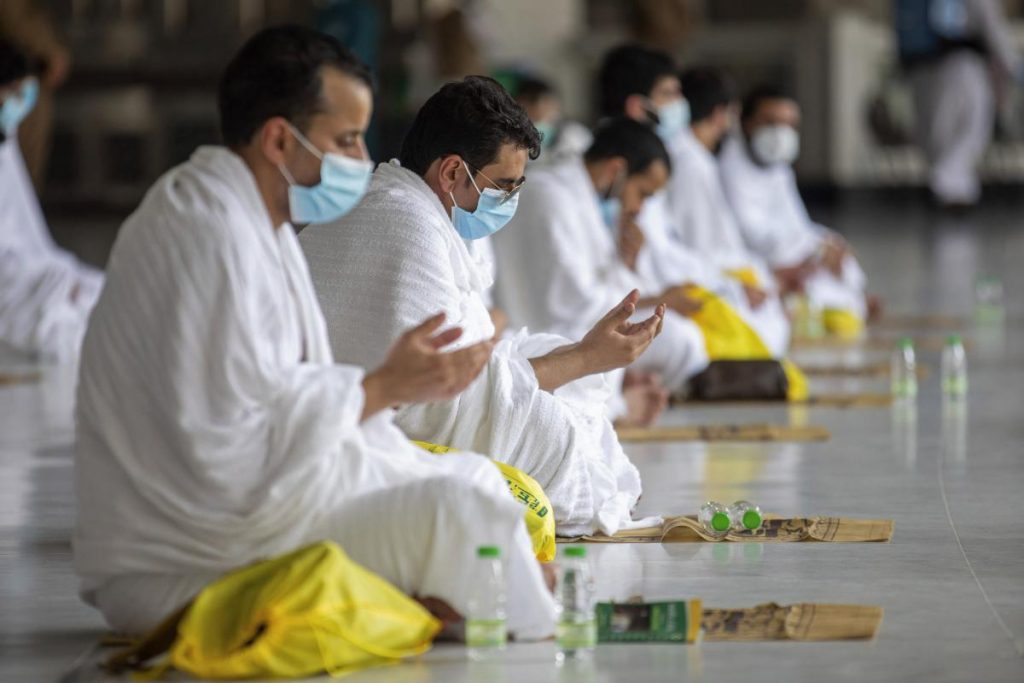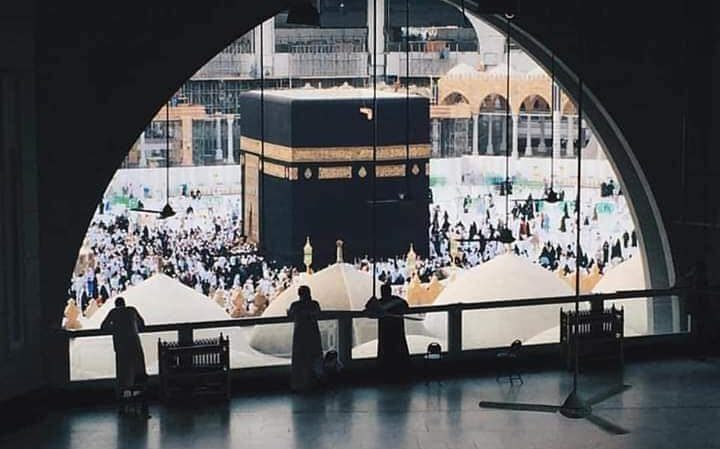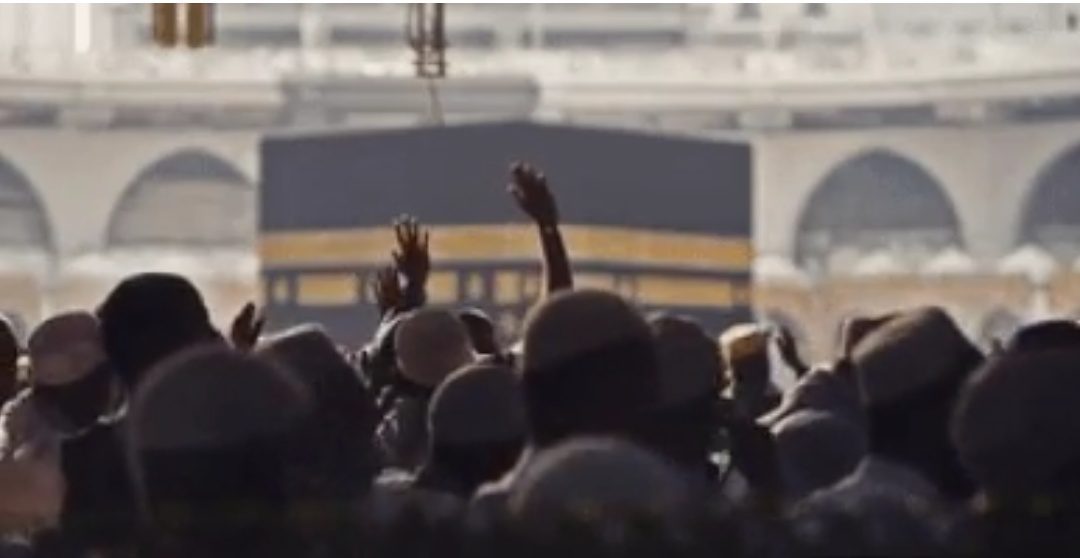Hajj, a fundamental pillar of Islam, is an annual pilgrimage to the holy city of Makkah in Saudi Arabia, obligating every capable Muslim adult to undertake it at least once in their lifetime. The pilgrimage encompasses various acts of worship, tracing back to Prophet Ibrahim (PBUH) and his family, symbolizing unity and submission to Allah’s will. With millions of Muslims gathering from across the globe, the rituals of Hajj, including Ihram, Tawaf, Sa’i, Waqfat ‘Arafah, Stoning the Devil, and Sacrifice, hold deep spiritual significance, seeking forgiveness and purification. Additionally, Umrah serves as another virtuous pilgrimage to Makkah, fostering spiritual growth and renewal for Muslims.
All Muslims aspire to take part in the amazing spiritual journey, i.e, Hajj. Taking place every year, there is a lot of information one needs to know about Hajj to get familiarized with it before embarking on this incredible pilgrimage such as the pillars of Hajj, types of Hajj with examples, and how to correctly perform it.
If you want to know everything about Hajj, including the pillars of Hajj, you have landed on the right post. Here, we have covered everything regarding the pillars of Hajj to help you learn about this obligatory act.
Table of Contents
What is Hajj?
In Arabic, the word Hajj means to intend a journey. Hajj, one of the 5 pillars of Islam, is the annual pilgrimage to the holy city of Makkah in Saudi Arabia. Here comes an important question: how does the Hajj fit into the pillars of Islam? it is because it includes prayer, charity, zakat, fasting, ideal character, patience, and jihad. One of the five pillars of Islam, the Hajj is considered not only a pillar of Islam but also influences all kinds of social, national, economic, and moral aspects of a Muslim’s life.
Ibn ‘Umar (May Allah be pleased with them) reported:
The Messenger of Allah (PBUH) said, “(The superstructure of) Islam is based on five (pillars), testifying the fact that La Ilaha Illallah wa anna Muhammad-ar-Rasullah [there is no true god except Allah, and Muhammad (PBUH) is the Messenger of Allah], establishing As-Salat (the prayers), paying Zakat (poor-due), the pilgrimage to the House [of Allah (Kaaba)], and the Saum (fasting) during the month of Ramadan.”
Allah says: “And ˹remember˺ when We assigned to Abraham the site of the House, ˹saying,˺ “Do not associate anything with Me ˹in worship˺ and purify My House for those who circle ˹the Kaaba˺, stand ˹in prayer˺, and bow and prostrate themselves. Call ˹all˺ people to the pilgrimage. They will come to you on foot and on every lean camel from every distant path, so they may obtain the benefits ˹in store˺ for them, and pronounce the Name of Allah on appointed days over the sacrificial animals He has provided for them. So eat from their meat and feed the desperately poor. Then let them groom themselves, fulfill their vows, and circle the Ancient House.
That is so. And whoever honors the rituals of Allah, it is best for them in the sight of their Lord. The ˹meat of˺ cattle has been made lawful for you, except what has ˹already˺ been recited to you. So shun the impurity of idolatry, and shun words of falsehood. It takes place during the final Islamic month of Dhul Hijjah. Every year, millions of Muslims make the journey to Makkah from all across the world. All Muslims must perform Hajj at least once in their lifetime, who are capable of undertaking this journey, both physically and financially, and can support their family during their absence from home.” (Al-Hajj: 26-30)
Who Should Perform Hajj?
Before clarifying the pillars of Hajj, let’s first know who should Perform Hajj. Every Muslim adult should perform Hajj at least once in their lifetime if they can afford it. They have to be of sound mind and physically and financially capable of performing this act. Those who successfully complete the pilgrimage can add the title Hajji to their names.
When Do You Perform Hajj?
It takes place during the month of Dhul Hijjah – the last month of the Islamic calendar. Pilgrims perform the rites of Hajj from the 8th to the 12th of Dhul Hijjah. Since the Islamic calendar depends on the lunar year, the date changes in the Gregorian calendar every year. It happens 10 to 11 days earlier than the preceding year.
How Many People Perform Hajj?

Some people want to know the number of pilgrims a day that cast stones at pillars during Hajj or the number of Muslims performing Hajj. Well, it has been estimated that almost 2-3 million Muslims gather every year in Makkah for Hajj from across the world. It is known to be the biggest single gathering of people on earth.
How Did Hajj Begin?
Today, the rites pilgrims perform at Hajj were established by Prophet Muhammad (PBUH), but based on the Quran, these rites can be traced back to Prophet Ibrahim (PBUH). It is believed that Allah SWT Prophet Ibrahim (PBUH) left his wife Hagar and son Prophet Ismail (PBUH) all alone in the desert of ancient Makkah. While searching for water, Hagar desperately ran between the two hills of Safa and Marwah seven times but didn’t find anything.
On returning to his son in despair, she saw the baby scratching his feet against the ground, and a water fountain sprang forth at the site. Today, it is the well of Zamzam in Masjid al-Haram in Makkah. Pilgrims visit the well while performing Hajj to drink its water.
With prayer, the pilgrimage needs ritual purification, represented by wearing white garments. Men shave their heads and wear two clean white sheets. Women wear simple dresses like a long dress and head covering. Sexual activities, hunting, and wearing jewelry or perfume are prohibited. When the pilgrims go near Makkah, they say out loud, I am here, O Lord, I am here. When they enter Makkah, they head to the Grand Mosque for Kaaba and perform various ritual actions.


Pillars of Hajj and Umrah
One of the five pillars of Islam the Hajj is the last one. It is an important pilgrimage that Muslims must take at least once in their entire lifetime. It is necessary to visit the House of Allah, and after the completion of the pillars of Hajj, all the past misdeeds of a Muslim get forgiven.
Abu Hurairah (May Allah be pleased with him) reported: The Messenger of Allah (PBUH) said, ‘Whoever performs Hajj (pilgrimage) and does not have sexual relations (with his wife), nor commits sin, nor disputes unjustly (during Hajj), then he returns from Hajj as pure and free from sins as on the day on which his mother gave birth to him.’ [Sahih Bukhari]
In another hadith, narrated by Abu Huraira: Allah’s Messenger (PBUH) was asked, “What is the best deed?” He replied, “To believe in Allah and His Apostle (Muhammad). The questioner then asked, “What is the next (in goodness)? He replied, “To participate in Jihad (religious fighting) in Allah’s Cause.” The questioner again asked, “What is the next (in goodness)?” He replied, “To perform Hajj (Pilgrimage to Mecca) ‘Mubrur, (which is accepted by Allah and is performed with the intention of seeking Allah’s pleasure only and not to show off and without committing a sin and in accordance with the traditions of the Prophet).” [Sahih Bukhari]
For more info, you could check ” Wajib acts of Hajj “
How Many Pillars of Hajj Do We Have?

The essential pillars of Hajj are as follows:
Ihram and Tawaf – For performing Umrah, pilgrims have to enter a sacred state, which is Ihram. They make the intention and dress up accordingly. Pilgrims walk anticlockwise seven times around Kaaba in Masjid Al-Haram. The Kaaba was constructed by Prophet Ibrahim (PBUH) and has utmost significance in Islam.
Sa’i – Pilgrims walk seven times between the mountains of Al Safa and Al Marwah. It is an ode to the struggle of Hagar, wife of Prophet Ibrahim (PBUH), who ran on these hills seven times to search for water for her infant son Prophet Ismail (PBUH).
Allah SWT stated in the Quran: “Indeed, ˹the hills of˺ Ṣafa and Marwah are among the symbols of Allah. So, whoever performs the pilgrimage or minor pilgrimage, let them walk between ˹the two hills˺. And whoever does good willingly, Allah is truly Appreciative, All-Knowing.” (Al-Baqarah: 158)
Waqfat ‘Arafah – There is a ritual of standing on the plains of Mount Arafah, which starts from the noon of the 9th day of Dhul Hijjah and continues till the 10th day. Here, the pilgrims stand before Allah SWT in repentance, seeking His forgiveness for themselves and every other Muslim in the world. It is where the Prophet Muhammad (PBUH) gave his last sermon on peace and harmony among his believers. Standing here together with all Muslims, pilgrims experience the underlying unity and equality of the community that transcends racial, national, and economic differences.
Stoning the Devil – Next step is to move to Muzdalifah and then to Mina to perform the stoning ritual in which they throw pebbles at three stone structures called Jamarat. A number of pilgrims a day cast stones at pillars during Hajj to remember how Satan tried to mislead Prophet Ibrahim (PBUH) from following Allah (SWT) but stopped when he threw stones at him on three occasions.
Aishah narrated that: The Prophet said: “Stoning the Jimari and Sa’I between As-Safa and Al-Marwah are only done for the establishment of Allah’s remembrance.” (Jami’ at-Tirmidhi)
Sacrifice – The 10th day of the month Dhul Hijjah, marks the beginning of the three-day festival of Eid ul Adha. On that day, the pilgrims perform the ritual of animal sacrifice to commemorate Allah’s command to Prophet Ibrahim (PBUH) to sacrifice his son Prophet Ismail (PBUH).
The pilgrims reenact Prophet Ibrahim (PBUH)’s rejection of the devil’s temptations to ignore Allah’s command by casting stones at the devil. Then, pilgrims sacrifice animals as Prophet did when Allah replaced his son with a ram. Then, the pilgrims continue with other rites to complete their Hajj. This sacrifice also symbolizes that, like Prophet Ibrahim (PBUH), the pilgrims are willing to sacrifice that which means a lot to them, such as their wealth.
Umrah and Its Pillars

Now that we covered the pillars of Hajj, it is time to learn more about Umrah. Similarly, Umrah is another obligatory act of worship in Islam that all Muslims must perform at least once in their lifetime. It is a pilgrimage to Makkah, which can be performed at any time of the year, except during the Hajj rituals. Umrah is also an act of spiritual cleansing and building up one’s connection with Allah SWT through different rituals in the memory of Prophet Ibrahim (PBUH) and Prophet Muhammad (PBUH). Though its significance is less than Hajj, the blessings a pilgrim gets after performing Umrah are no less than Hajj.
Its virtue can be seen from a hadith. The Prophet Muhammad (PBUH) was asked whether Umrah was obligatory? He (PBUH) said: “No. But if you perform Umrah, it is more virtuous.” [Jami’ at Tirmidhi]
In another hadith, Allah’s Messenger (PBUH) said: “(The performance of) Umrah during Ramadan is equal to Hajj (pilgrimage).” Or said, “Equal to the performance of Hajj with me.” [Sahih Muslim]
- Ihram – To perform Umrah, Muslims must enter a sacred state, which is Ihram. For entering Ihram, men must wear clean and simple clothing designed to perform Umrah. While men have to wear two white sheets of clothes, women can wear anything modest and unpretentious. In addition, a person must wear Ihram before passing the Meeqat. What’s more, the state of Ihram has certain prohibitions, which the pilgrims must conform to for a successful pilgrimage. Such prohibitions are hunting, shaving sexual activities, the application of perfumes, etc.
- Tawaf – Tawaf means to walk around and signifies seven circumambulations around Kaaba (the House of Allah SWT) in a counterclockwise direction. It is one of the major rites performed by the pilgrims in Umrah and Hajj. All these seven rounds begin and end at Hajar-al-Aswad (The Black Stone). Kaaba is a sacred site for Muslims, so pilgrims encircle it and move together in harmony while supplicating to Allah.
- Sa’i – Sa’i is the sacred circumambulations between the two small hills Safa and Marwa, seven times in Makkah. While performing Sa’i, the pilgrims seek blessings and mercy from Allah (SWT). It also symbolizes the struggle Muslims face in daily life, so pilgrims seek courage and motivation from Allah (SWT) to overcome it.
ِand then Tahallul – Tahallul means the discontinuation of the ritualistic state of Hajj/Umrah. After completing Umrah, pilgrims perform certain activities like men shaving their heads while women cut a small portion of their hair. After performing these activities, pilgrims will be freed from all the prohibitions of Umrah, and their Umrah will be accepted.
Learn Quran, Arabic And Islamic Studies Online With The Best Native Tutors
Riwaq Al Quran is a comprehensive online platform that offers personalized Quran, Arabic and Islamic Studies Online classes for individuals of all ages and backgrounds.
Their experienced instructors use a structured curriculum to cover Tajweed, Tafsir, and Memorization, providing easy and effective access to learning the Quran.
The advanced online classes allow for seamless communication and interaction between students and teachers. Join Riwaq Al Quran for a deeper connection with the Quran.
We offer several courses such as:
- Online courses for kids.
- Online Quran classes for kids and adults.
- Online Arabic courses
- Online Ijazah courses
- Online Islamic Studies courses.


Final Thoughts
In conclusion, Hajj stands as a profound testament to the unity and devotion of Muslims worldwide, encapsulating the essence of Islam’s principles and beliefs. Through its rituals, pilgrims reaffirm their faith, seek forgiveness, and undergo spiritual transformation. The pilgrimage to Makkah serves as a sacred journey of purification, reflection, and renewal, reminding believers of their submission to Allah’s will and their commitment to live a life guided by Islamic teachings. As Muslims fulfill their obligation to perform Hajj and Umrah, they strengthen their connection with Allah, their fellow believers, and the rich heritage of their faith, embodying the values of compassion, humility, and piety.
Every adult Muslim, who is physically and financially able, is expected to perform this annual pilgrimage to Makkah at least once throughout their life. If you want to perform the pillars of Hajj, get in touch with the highly professional tutors at Riwaq Al Quran. We offer a Special Online Course covering the five pillars of Islam. Join our course today and learn about the 5 pillars of Islam, including Hajj.
Related blogs:
Umrah & Hajj Mubarak Wishes


































